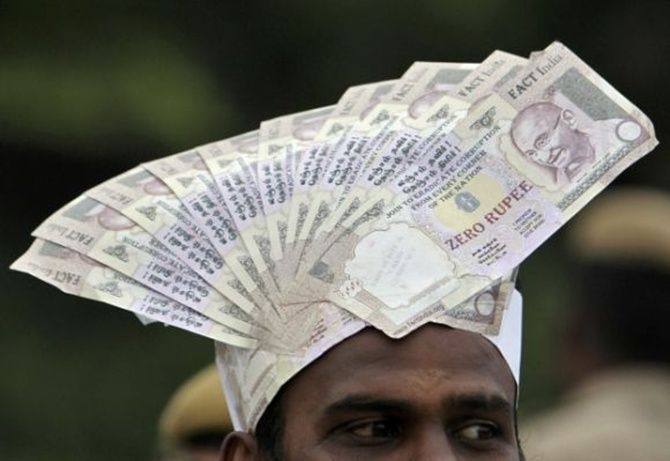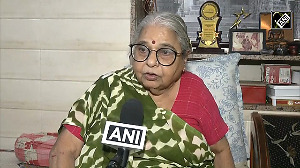The government has incentivised the worst of investment products for you to save in, explains Debashis Basu.

The Budget of 2015 has quite a few changes for the individual taxpayer. All tax breaks relating to expenses are good.
Unfortunately, most of the breaks for investments are thoughtless and very few savvy-savers should go for these.
The government has incentivised the worst of investment products for you to save in. But, first, the good part - the increase in deductible expenses.
Earlier, the deduction of health insurance premium was Rs 15,000. It is now Rs 25,000 (for senior citizens, the limit is up from Rs 20,000 to Rs 30,000). This is a good move and you must take advantage of it.
Senior citizens above the age of 80 and not covered by health insurance will be allowed deduction of Rs 30,000 towards medical expenditures.
The deduction limit for treatment of certain chronic and protracted diseases in case of senior citizens has been increased to Rs 80,000 from Rs 60,000.
An additional deduction of Rs 25,000 has been allowed for treatment of differently-abled dependents. The FM has also raised the transport allowance limit from Rs 800 to Rs 1600.
There are three major changes. One, contributions to insurance pension schemes were limited to Rs 1 lakh. This was an anomaly because all other investments under Section 80C fetched Rs 1.5 lakh as a tax break.
You can now get a tax break for contributions up to Rs 1.50 lakh for insurance pension. But pension products from insurance companies are not going to do much for your pension.
Returns are pathetic because your money is invested in debt products, fetching gross returns like in bank deposits. The insurance company also deducts costs and fees. Your return would be around five per cent.
Two, in a major step towards popularising the flawed New Pension Scheme, the finance minister has made significant changes to Section 80CCD. Earlier, contributions not exceeding 10 per cent of basic salary to NPS were eligible for tax deduction, subject to a limit of Rs 1 lakh.
From what I could interpret, an overall limit of Rs 1.5 lakh will now apply. That apart, from salary you can save up to Rs 50,000 as tax deduction.
Unfortunately, NPS is not popular, for all the right reasons. NPS comes under what is called an exempt-exempt-tax system. NPS is taxable on withdrawal. Plus, the money is locked in and you have to compulsorily buy annuities, a terrible product.
Three, the Sukanya Samriddhi Account (SSA) is eligible for tax rebate under Section 80C. Not only do you get Rs 1.5 lakh as benefit by depositing money under this scheme but even interest accruing on such deposits are exempt from income tax.
The rate of interest would be 9.1 per cent a year and you need to invest at least Rs 1,000 and a maximum of Rs 1,50,000 in a financial year. The account can be opened for a beneficiary up to the age of 10.
Partial withdrawal, up to 50 per cent of the account balance, is possible once the beneficiary reaches 18 years. The account can be closed once the beneficiary reaches the age of 21.
This is another scheme that will hardly create inflation-beating wealth. For long-term growth of wealth that beats inflation, equity-linked savings schemes remain the best.
SSA is illiquid; you cannot withdraw even during emergencies.
After a two-year hiatus, tax-free bonds (for projects in the rail, road and irrigation sectors) will again appear. This will be worth waiting for and should form the most important part of your debt portfolio.
The FM has also announced you can now deposit gold to earn interest. State Bank of India already has a scheme like this that fetches about three per cent interest.
The writer is the editor of www.moneylife.in











